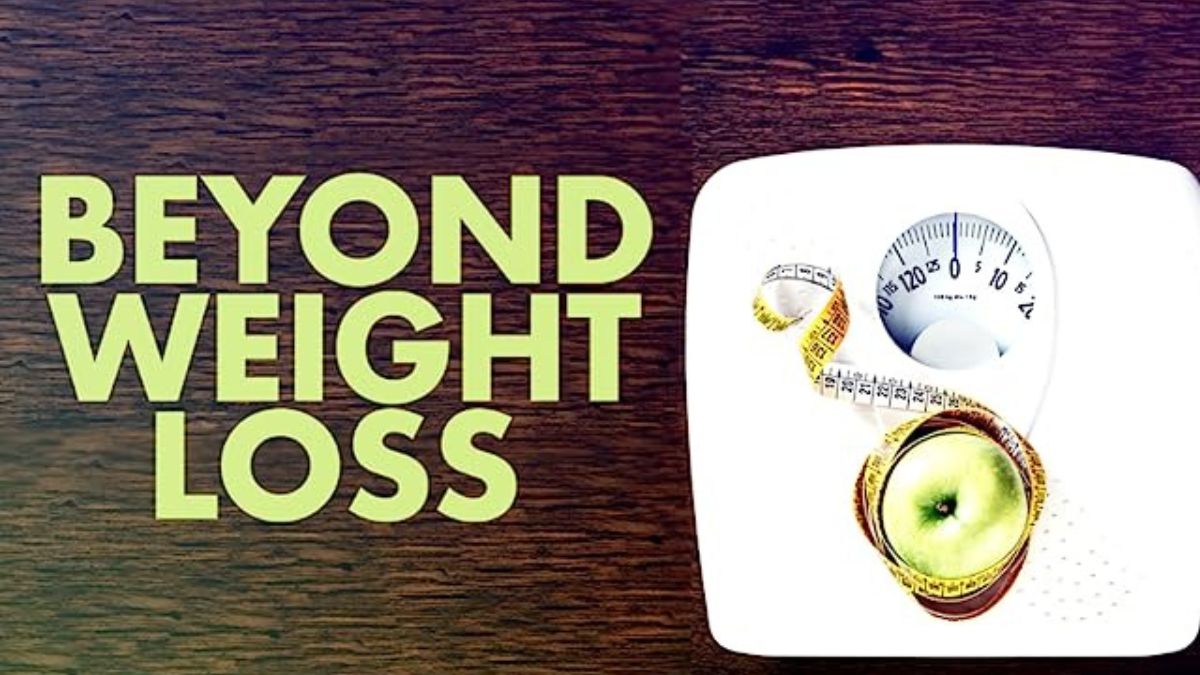Although tough from birth, New Yorkers are not Stone Age tough. Our foraging ancestors were hunter-gatherers who frequently went without food for extended periods of time. The unpredictable nature of receiving their next meal had allowed humans to adapt.
But these days, we’ve “evolved” to anticipate three substantial meals and snacks each day.
Nowadays, weight loss has turned into a cultural obsession. And intermittent fasting is a trending topic. But it has roots in how we have evolved as human beings.
Scientists are learning how our bodies mimic our ancestors’ adaptations to intermittent fasting. And it has been claimed that fasting has other health advantages aside from weight loss. It would appear that when we eat can be just as significant as “what” we eat. In this article we will talk about the secret of shedding pounds beyond weight loss.
Contents
Getting To The Hidden Truths Beyond Weight Loss
Eating a wholesome, balanced diet is the greatest method to manage your weight. However, intermittent fasting is one of the most crucial secrets. There are set times when you eat and when you don’t when you practice intermittent fasting. Three methods have been examined by medical researchers, who have demonstrated their efficacy.
Daily time-restricted feeding entails limiting the amount of time you eat to one day, often eight hours. There are 16 hours a day that you are fasting. As a result, you might stop eating at eight in the evening and not eat again until noon the next day.
Your body triggers a “metabolic switch” after 10 to 12 hours, and you begin using up the glucose that has been stored in your body. When the 700 calories of glucose stored by your liver are used up, your body begins to burn off that stubborn abdominal fat. The best time to have breakfast is 12 to 16 hours after dinner. That way you get a good 16 hour fast each day, also known as intermittent fasting.
You can see the tweet below which verifies the above facts.
Breakfast simply means break the fast. Not necessarily eat in the morning.
The best time to have breakfast is 12 to 16 hours after dinner.
I recommend dinner by 7pm then breakfast 10-11am.
That way you get a good 16 hour fast each day, also known as intermittent fasting (IF). pic.twitter.com/og9nrzQMPl
— Dr Kasenene (@drkasenene) August 1, 2023
In a 5:2 intermittent fast, you eat normally five days a week. You only eat one modestly sized meal on the other two days. The two days you’re fasting should not be in a row. On those days, your aim should be one 500-calorie lunch. By starting with just one day each week, you may progressively work your way up to this.
That day, your dinner may have 1,000 calories. Try it for a month, and then over the following month, increase it to two days each week. Next month, limit your daily calorie intake to 750. The following month, aim for 500 calories.
Alternate day fasting is the most extreme form. On the days you eat, limit your window of time to 12 hours. Following that, you shall abstain from food that evening and the following day. It’s crucial to remember that if you don’t add any calories, like milk, half-and-half, or sugar, you can drink as much water as you want.

The same goes for tea and coffee. In addition, you can take vitamins, supplements, and, of course, your regular medications. The need to take some medications and supplements with food should be discussed with your doctor. As a result, your meal schedule can include Sunday, Tuesday, Thursday, and Saturday. It would then be Monday, Wednesday, and Friday the following week. Now let’s have a look at the outcome of Intermittent fasting.
Some of these advantages pertain to shedding pounds. In addition to increasing metabolism and helping you burn more calories, intermittent fasting tends to reduce fat around the central organs. Inflammation and belly obesity make the heart more vulnerable. Additionally, lower cholesterol lowers the risk of stroke and heart disease.
But once your “metabolic switch” activates, there are a variety of additional advantages. When you run out of glucose, your body starts using the ketone bodies in your liver as fuel. Ketone bodies are power immune cells. They improve T cell function by reprogramming them to better respond to threats.
Additionally, since ketone bodies are more than simply fuel, they also serve as a command center for a wide range of different cells and substances that can have an impact on one’s health.
You can check the official Twitter post below.
Hmm, another reason why low carb/keto is beneficial beyond weight-loss. https://t.co/rSNANQpTso
— The Couch Potato Coach (@BenCPCoach) July 31, 2023
For a long time, researchers have been examining the connection between intermittent fasting and c@ncer in animals. Numerous malignancies have been proven to develop more slowly and respond better to chemotherapy and radiation treatment when subjected to calorie restriction or alternate-day fasting. Human studies are encouraging, but caution must be exercised to prevent malnutrition. The trick is to consult your doctor.
Check out our posts below if you’re curious to read more about Cillian Murphy and Ben Napier’s weight loss journey:
- Cillian Murphy Weight Loss: How Did He Achieve His Transformation?
- Ben Napier Weight Loss: How Did He Transform His Life And Body?
The ketone bodies also cause a process known as autophagy, which restores the body’s healthy cells. In a similar fashion to cellular housecleaning, the cells get rid of outdated proteins. Studies on people and animals show physical advantages. In one study, 16-hour fasting resulted in fat loss while retaining muscle mass over the course of two months of resistance exercise in young men. Animals participating in experiments on fasting showed improvements in balance, coordination, and endurance.
In research involving humans who are fasting, verbal memory, spatial cognition, short-term memory, and associative memory are all improved. This is significant information for the fight against Alzheimer’s and Parkinson’s disorders. Multiple sclerosis and rheumatoid arthritis have also been shown to benefit from neurological benefits. Likewise, are there any drawbacks to this? To know the answer, scroll down.
What Is The Drawback?
Intermittent fasting must become a way of life to reap the benefits. It can be difficult to maintain fasting periods. But a gradual regimen that builds up to longer fasting intervals can be beneficial. You should anticipate feeling hungry at first, but science informs us that this is more psychological than physiological in nature.
When you feel hungry, drinking water can make your body believe that you are full. Even if you might feel a little hazy, black coffee and tea are your friends. Of course, you should first speak with your doctor if you are undergoing any kind of medical treatment, such as chemotherapy.
To know more such news, keep a close check on our website, serveupdate.com.




